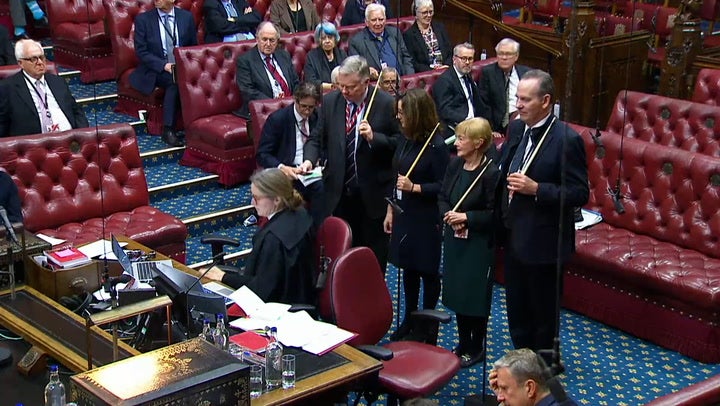The House of Lords must speak with one voice against the Rwanda plan
If my fellow Lords allow the Rwanda bill to pass unamended, it will be a stain on parliament’s conscience, says bishop Guli Francis-Dehqani – and will forever diminish our moral standing as a country


When legislation comes to the House of Lords, peers are tasked with revising and improving it by asking the question: “How can we make this bill better”? The Safety of Rwanda Bill, which will come before the Lords today for a second reading, has led many of us to ask a more fundamental question: “How can we make sure that we are better than this?”
The Rwanda bill is unprecedented in asking parliamentarians to substitute the judgment of our highest court with the government’s own assessment that Rwanda is safe for asylum seekers, even though this is contrary to the current facts on the ground. By legislating that every domestic decision maker must treat Rwanda as safe, the bill not only ignores the recent evidential assessment by our judiciary, but leaves some of the world’s most vulnerable people without any suspensive legal remedy against their removal from the UK.
Have we not lost touch with our humanity if we choose to contravene international law in this most extraordinary manner, for the purpose of transporting people, many of whom have been through traumatic and unspeakable experiences, thousands of miles away, without even hearing their asylum claims?
Exposing asylum seekers to a potential risk of refoulement to their home countries, where they may face torture or serious mistreatment from which they had once fled, is not something that can ever be rectified. Preventing our domestic courts from considering this risk through an act of parliament will leave a vulnerable group, almost entirely unprotected by law, from the actions of the government. This is an abdication not only of commitment to our international obligations, but of our role in promoting the rules-based order which upholds the rights of refugees across the globe.
It is extremely concerning that the Rwanda bill implies human rights are discretionary, somehow no longer universal but only to be enjoyed by those outlined in domestic law. The fundamental truth that every person is deserving of rights is at the heart of the Christian faith, based on the principle that every person is made equally in the image of God.
Many different faith traditions hold to this same principle which is also central to the UK’s commitment to the rule of law – that no one is above the law, and that the law must be applied equally to everyone. Is it not what we do and stand for as a country, that we uphold and promote the rule of law? Parliament does have a right to create laws, but its authority cannot extend to creating injustices that will also put this country’s global reputation and leadership at risk.
My fellow bishops and I have spoken with one voice against the Rwandan scheme, believing it is wrong to outsource our responsibility to those seeking sanctuary in the UK. However, that is not to deny the challenges that unsafe and irregular migration present. No one wants to see individuals and families make the unfathomable decision to risk their lives to reach safety, and migration does need regulation.
That is why it is so frustrating that the Rwanda bill is yet another missed opportunity to discuss how the root causes of forced migration can be addressed through developmental and humanitarian efforts and global cooperation, under international law, to provide safer access to asylum. It is the refugee experience – the child whose age has been disputed and who might be transported to Rwanda with no right of appeal, the trafficked sex worker on a potential flight after forced travel to the UK – that must inform our debate in the Lords.
I hold onto the belief that we are and can be better – that our nation’s commitment to the international system of refuge protection and equality of all before the law will be upheld. Failure will come at great cost to our moral standing as a country.
Rt Revd Dr Guli Francis-Dehqani is Bishop of Chelmsford
Join our commenting forum
Join thought-provoking conversations, follow other Independent readers and see their replies
Comments
Bookmark popover
Removed from bookmarks